May 14, 2025 | 11:28 GMT +7
May 14, 2025 | 11:28 GMT +7
Hotline: 0913.378.918
May 14, 2025 | 11:28 GMT +7
Hotline: 0913.378.918
Under the leadership of Minister Le Minh Hoan and Deputy Ministers Phung Duc Tien, Tran Thanh Nam, and Nguyen Quoc Tri, the Ministry of Agriculture and Rural Development held a conference on July 5 to review the first half of the year's tasks and to implement the plan for the last half of 2023.
In response to the Minister of Agriculture and Rural Development Le Minh Hoan's recommendations on science, technology, and innovative solutions associated with sustainable agriculture and rural development strategies, department heads within the ministry have proposed ideas to promote their respective sectors in the second half of the year.
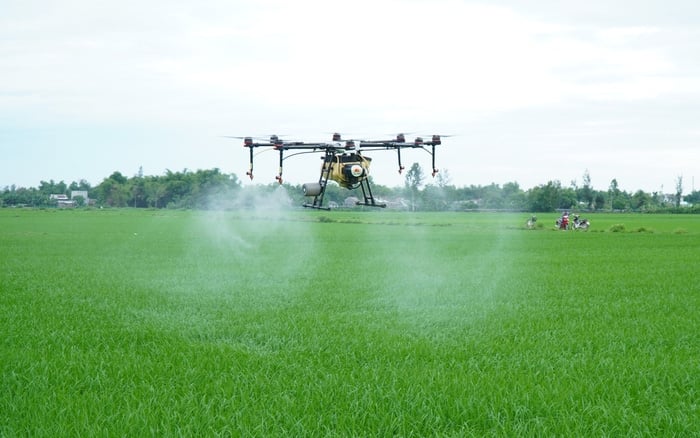
Science and technology play an essential role in agricultural development and are an instrument that assists the agricultural industry in achieving results.
Ms. Nguyen Thi Thanh Thuy, Director of the Department of Science, Technology, and the Environment, highlighted a number of deficiencies and restrictions. Science and technology play an essential role in agricultural development and are an instrument for the agricultural industry to achieve good results in terms of agricultural products, agricultural product quality, agricultural product output, etc. This sector's influence span all agricultural sectors and products.
However, there are still some internal issues that must be resolved "immediately" to increase this sector's contribution to the overall growth of the industry. Consequently, the science and technology system, research organizations, and scientific community still have limitations.
Even though the system of institutes and institutions is extensive, there are still organizational, personnel, and human resource deficiencies. Numerous science and technology products have not yet formed an integrated tool, nor a chain from input to output; the program has not been developed, and the specific problem has not been identified; human resources are still inadequate, and there is no continuity or inheritance. Fragmented connections exist between internal institutes and academies, institutes with enterprises and farmers.
In light of the aforementioned challenges, a representative of the Department of Science, Technology, and Environment proposed a review and reorganization of the internal structure of independent science and technology organizations.
It is deemed necessary to develop technology programs for key product groups, strengthen the cooperation and association between scientists and farmers in order to incorporate science and technology products into the farming process, thereby perfecting mechanisms and policies.
Ms. Thuy also proposed constructing an ecosystem of R&D (research and development) units within the Ministry in order to share cooperation, human resources, and facilities, as well as to complement each other in the disciplines of science, technology, and innovation.
With the suggestion of Minister Le Minh Hoan for the crop industry to change the focus from output to added value, and to shift towards multi-layer and multi-value land exploitation, the Department of Crop Production acknowledged that there has been no assessment of the effectiveness of the intercropping models, thus no summary to provide directions for the development of the cropping industry more effectively and efficiently.
Director General Nguyen Nhu Cuong stated that in the near future, the Department of Crop Production will select a number of products to exploit multi-layers and multi-values in parallel, beginning with the cashew industry.
Regarding the construction of certain key objects, Mr. Cuong stated that in order to create a brand for agricultural products, the product must be distinct from similar products around the globe, in addition to having advantages. Coffee and durian are examples of items that can create identities.
The Department of Crop Production will implement the standard production process, and build a large and large-scale concentrated raw material area, in which the standard process and standard varieties will be developed and applied as a basis for linking production organizations; further develop the establishment of growing area code, traceability, and particularly coordinating with businesses - who play a significant role in the branding of agricultural products.
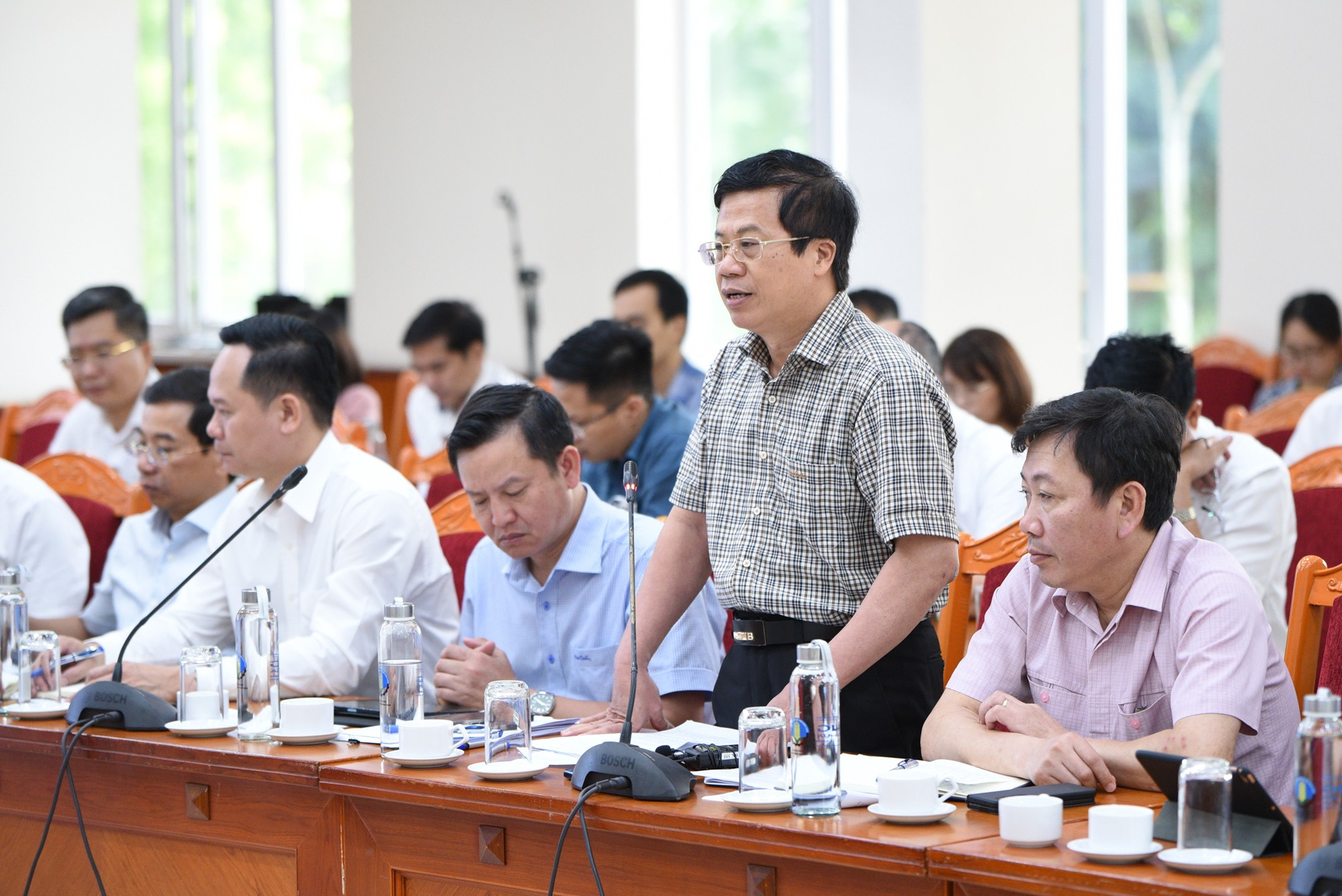
Representatives of the Department of Livestock Production proposed solutions to master breeding technology, feed, and processing. Photo: Tung Dinh.
The Department of Livestock Production suggested focusing on breeding and food in response to Minister Le Minh Hoan's proposal to determine solutions to master breeding technology, feed, and processing for essential commodities such as swine, poultry, and dairy cows. The Department will coordinate with the Department of Quality, Processing, and Market Development and the Department of Animal Health regarding slaughtering and processing in the supply chain.
Strategically, the Department has decided to prioritize the resolution of the system and the breed, despite the importance of technological solutions to the problem. The solution is to focus on industrial, large-scale, and broader production with seed products; implement breeding achievements, particularly biotechnology; develop more sustainable varieties; and construct gene banks with indigenous livestock breeds. In addition, upgrading three significant research, breeding, and breeding facilities with piglets, cows, and elderly birds. Focusing on encouraging the implementation of technological advances in the cultivation of food, production, and environmental treatment varieties.
Resolution 26/NQ-CP of the Government assigned the Ministry to develop the "Project on development of multi-use values of the forest ecosystem" for the forestry sector. Mr. Tran Quang Bao discussed multi-valued integrated thinking from the forest ecosystem and future industry solutions.
Consequently, with approximately 4.5 million hectares of planted forests serving as the primary source of raw materials for the export of forest products, the industry will concentrate on seed issues to increase forest productivity and provide forest certificates to assure legal timber. In addition to acacia and eucalyptus trees, the sector will plant additional trees to diversify raw material sources and guarantee sustainable development.
With natural forests covering 10,2 million hectares, forest quality and area must be rigorously protected and restored while promoting forest environmental services such as water supply, carbon sequestration, etc.
In the near future, in addition to the implementation of the project, the Department of Forestry will propose the development of three additional projects on the development of the added value of the forest ecosystem in 2023: the development of medicinal botanicals and the development of multi-use values of forest ecosystems.
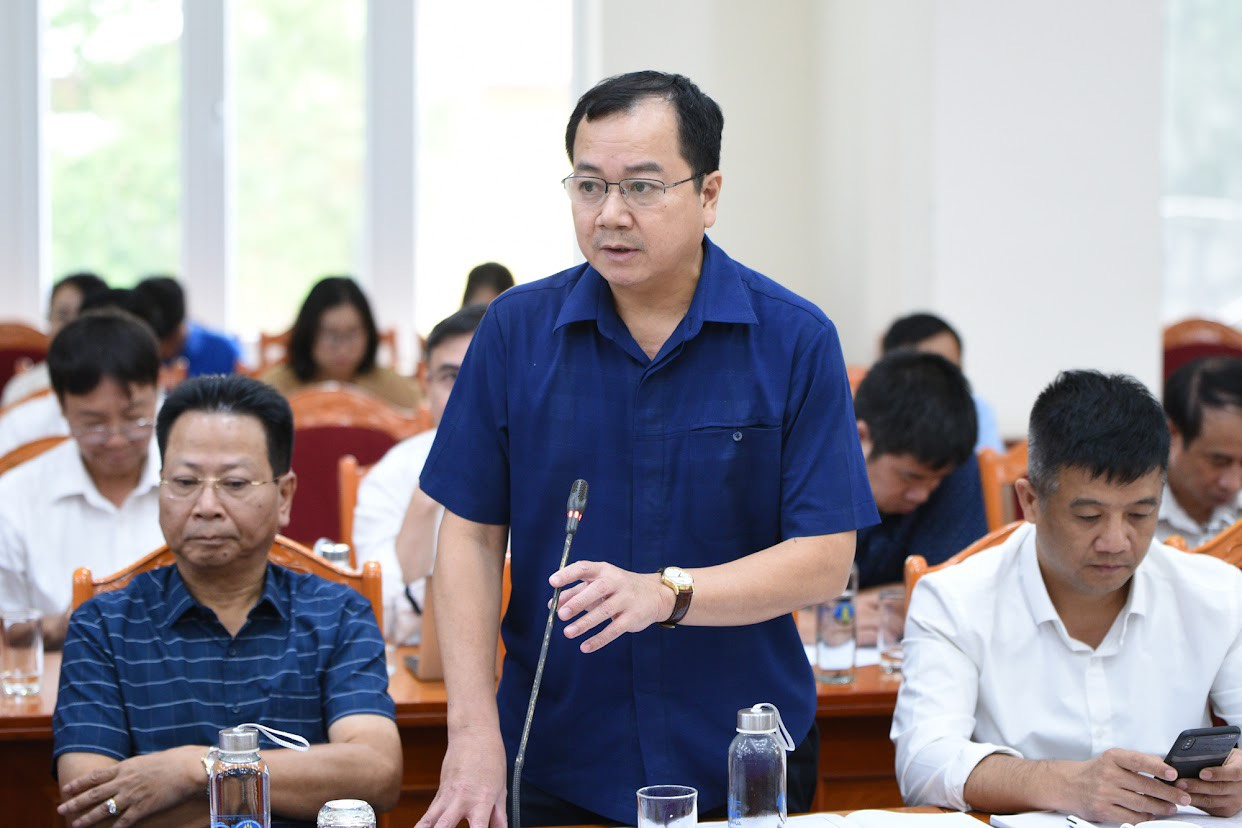
Mr. Tran Dinh Luan, Director General of the Directorate of Fisheries. Photo: Tung Dinh.
Regarding fisheries, the Director General of the Directorate of Fisheries, Mr. Tran Dinh Luan, stated that there is a balanced transition between aquaculture and trawling, ensuring the sustainable exploitation of resources and promoting the potential of aquaculture.
Regarding the proposal to develop recirculating aquaculture models involving processing, recycling, and by-products, Mr. Luan stated that it is time to consider recirculating, closed, and emission-reduction models, such as shrimp-rice, shrimp-forest, and extensive shrimp models. To reduce environmental emissions, the circulation model and biotechnology have been applied to industrial farming models, particularly intensive farming. However, replication of these models remains sluggish and will require increased promotion in the near future.
Concerning the market issue, the Department of Quality, Processing, and Market Development highlighted a number of challenges after Covid-19, including changing markets, protectionist tendencies, competition for market share, swiftly changing supply and demand, and increasingly stringent technical barriers.
In response to these challenges, Director General Nguyen Nhu Tiep proposed a number of solutions, which include identifying market information, identifying product lines; better and more harmonious combination of market opening, taking advantage of market opening for export; mounting ensures quality and safety; disseminating and periodically updating market requirements, assisting enterprises, associations, and industries to meet technical requirements; continuing to negotiate market opening; and securing market access.
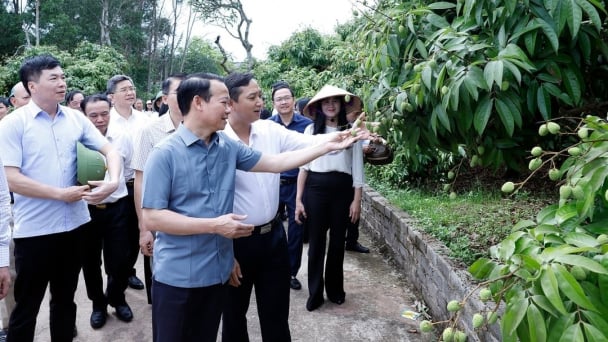
(VAN) Agriculture and environment sector experienced a 3.74% increase in growth during the first four months of 2025, with exports surpassing 21 billion USD. This growth was sustained by effective reforms and a trade surplus.
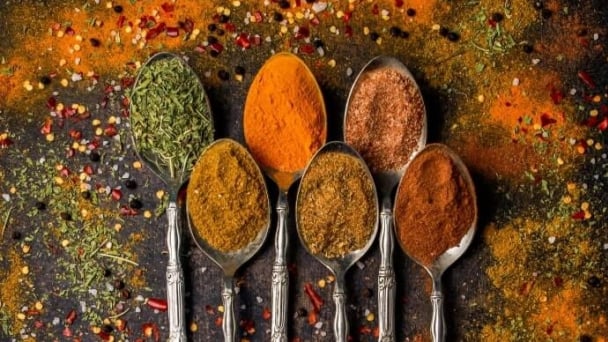
(VAN) Taiwan offers a promising market for Vietnamese turmeric; however, it enforces stringent standards, particularly concerning residual additives, colourants, and substances with potential carcinogenic effects.
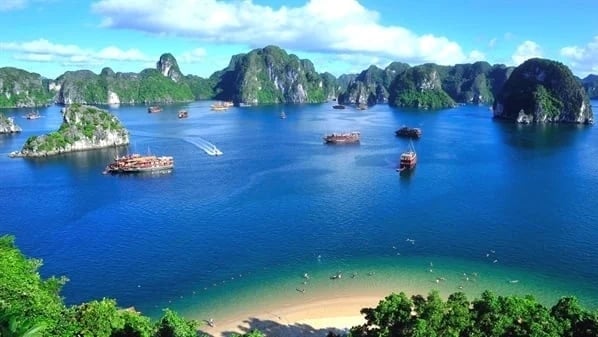
(VAN) Through activities at Vietnam Sea and Island Week 2025, solutions will be developed to fully harness the potential and advantages of Vietnam's marine economy.
![Multi-channel, multi-directional Vietnamese agricultural markets: [4] EVFTA and the 0% tax advantage](https://t.ex-cdn.com/nongnghiepmoitruong.vn/608w/files/linhnhp/2025/05/12/day-chuyen-che-bien-tom-tai-1-nha-may-cua-sao-ta-205536_359-1044193.jpg)
(VAN) The near-complete elimination of import tariffs on Vietnamese goods makes the EVFTA the highest commitment the EU has ever made to a partner in its signed trade agreements.
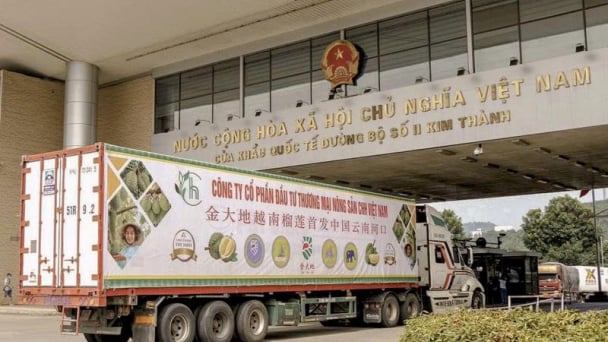
(VAN) Deputy Minister Phung Duc Tien hopes that China will facilitate the entry of Vietnamese agricultural products into its market and accelerate customs clearance at border gates.
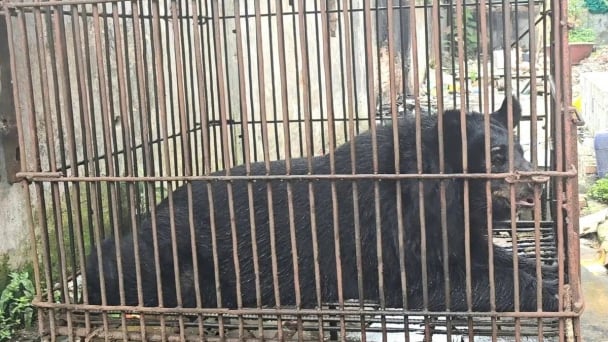
(VAN) On May 10, the Animals Asia Foundation and the Hai Phong Crop Production and Forest Protection Department successfully rescued a nearly 20-year-old sun bear that was being kept by locals.
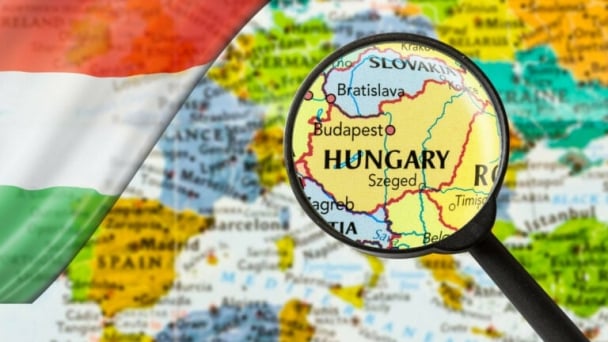
(VAN) Does Hungary have an opportunity to expand poultry production in the coming years despite the pressure from avian influenza and challenges of the trade war?